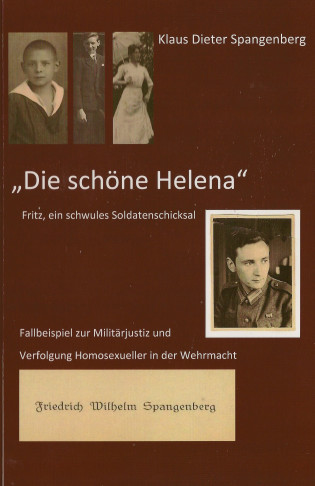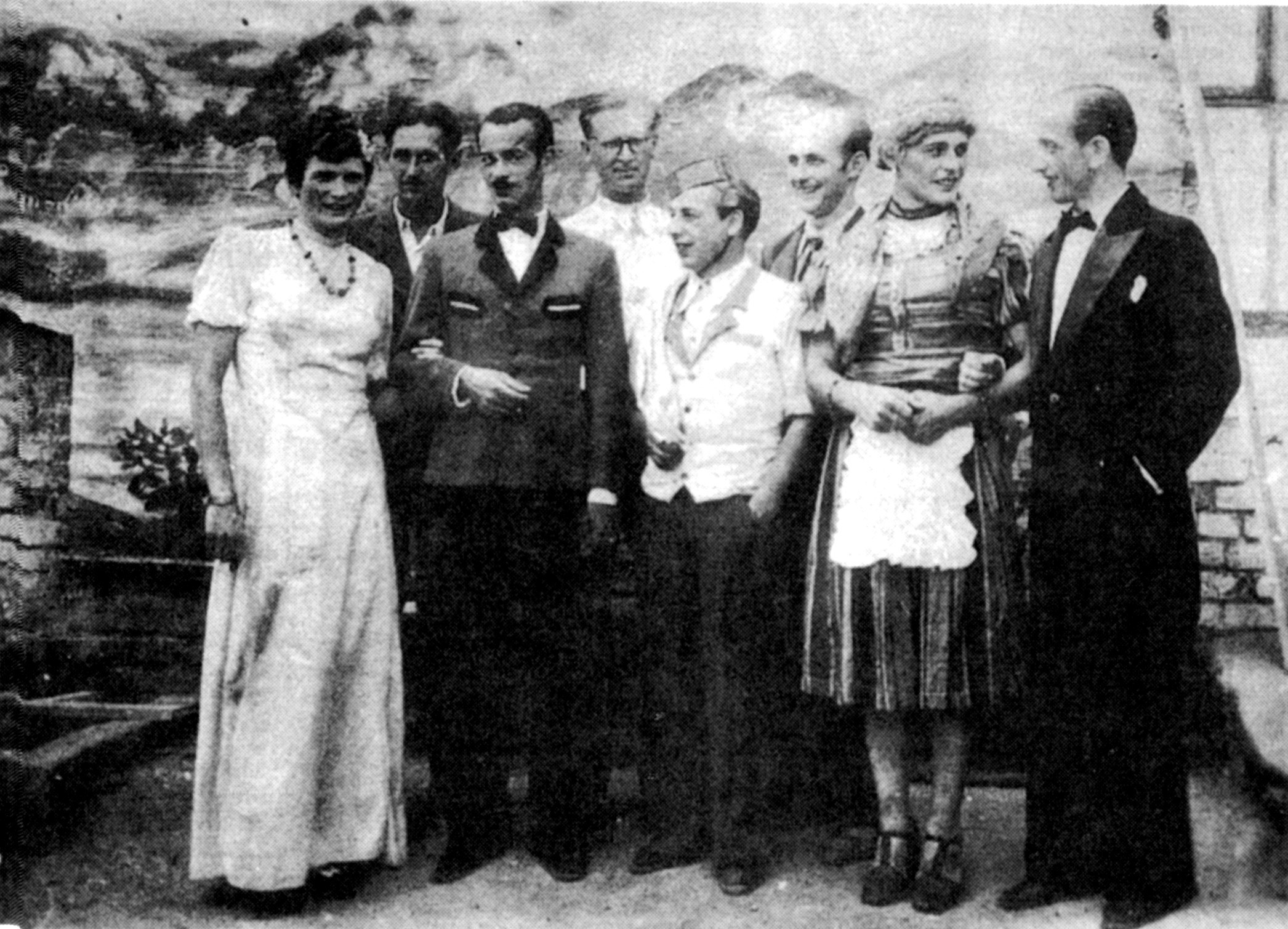Michael H. Hardern
Operetta Research Center
27 January, 2015
Considering that Offenbach’s La belle Hélène recently received two extremely “gay” interpretations at the opera houses of Hamburg and Berlin – the version in the German capital being and out-and-out homoerotic staging – it seems only befitting that there now is a book entitled Die schöne Helena which really is unquestionably about “homosexualty”!

“Die schöne Helena” by Klaus Dieter Spangenberg.
Klaus Dieter Spangenberg has written a slim book about his family member Friedrich Wilhelm Spangenberg (1914-1944). He spent his childhood and youth in Marburg/Lahn. As soon as he finished his studies (pharmacy), he was enlisted by the Wehrmacht.
During the Third Reich, Friedrich Wilhelm could not live his homosexuality openly. His sexual orientation quickly led to his downfall, when in 1943 he was denounced by a comrade or officer. A military tribunal sentenced him to nine months imprisonment. Degraded, upon release from prison he got the opportunity to “prove” himself a worthy German at the Eastern Front. There he went missing.
You might recall that the Nazis used homosexuals as landmine “watchdogs,” sending them ahead to see if any of them blow up when stepping onto a bomb, thus warning the rest of the troupe. Which was considered a “worthy” death and left those who survived deeply traumatized.
“Die schöne Helena” is the attempt to reconstruct a short life in the shadow of Fascism, with documents from the military archives and photos from the family collection.
Obviously, this book has nothing to do with Jacques Offenbach and his infamous sexy heroine. Yet the book opens up the spectrum of possible interpretations in which we can discuss “Die schöne Helena,” if we desire to do so from a LGBT perspective. It is well known that operettas were performed in military camps, often with all-male casts. While it is unlikely that La belle Hélène by Jewish composer Offenbach got a staging in a Nazi prison camp, there are examples of immediate post-war performances of formerly “degenerate” operettas such as Im weißen Rössl by the (homosexual) Jews Erik Charell and Hans Müller.

The “White Horse Inn” in a Russian war camp, 1946. (Photo: ORCA)
A potential next step in the Offenbach performance tradition, thus, might well be an all-male – or all-female – staging of Die schöne Helena, possibly with reference to war time theaters and their cross-dressing tradition. And who knows, after that we might eventually get back to straight forward “straight” productions again and come full circle?
For more information on Klaus Dieter Spangenberg’s book, click here.

It’s somewhat amusing the read the subtitle “Fritz: Ein Soldatenschicksal.” Sounds like straight out of another Offenbach operetta.
how moving!
Thank you for your comments on my book.
I came to the title, as I found to lovely pictures in my grandfathers photoalbum of Fritz in drag, ther where subtitles “Die schöne Helena”….My family told my that he was passionate with theatre and also went to see al lot of operettas in the early 1930`s.